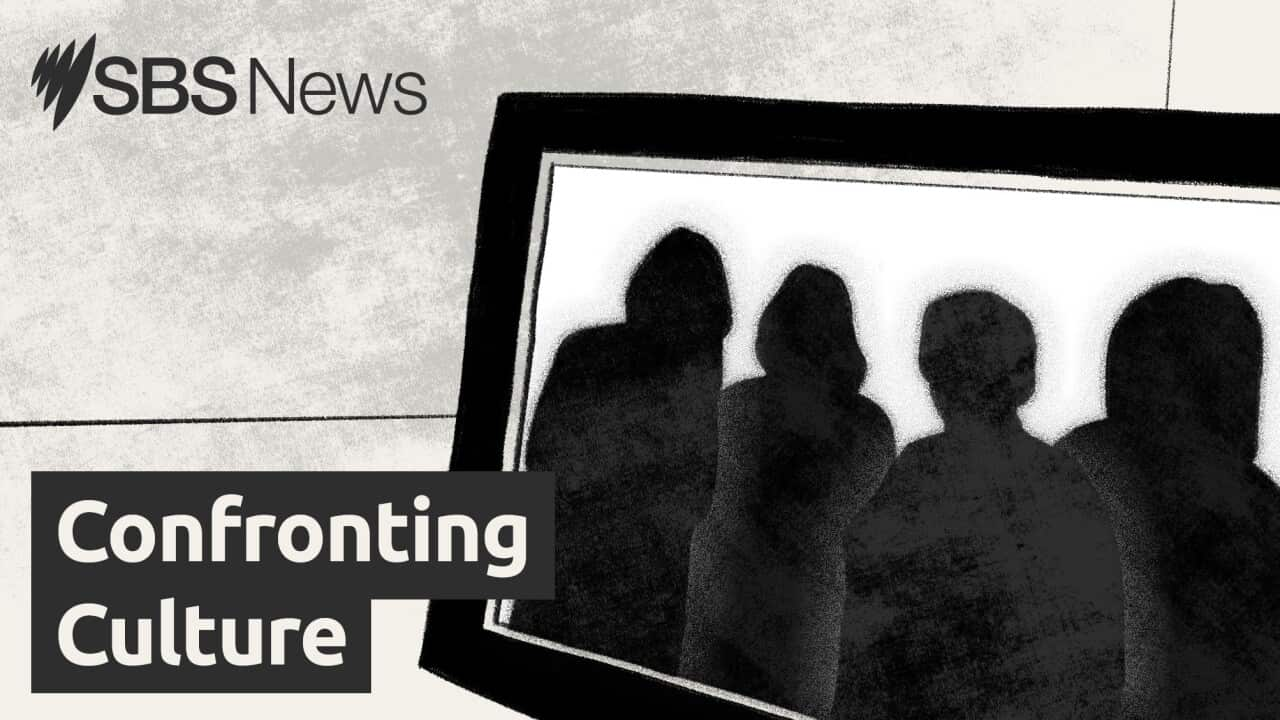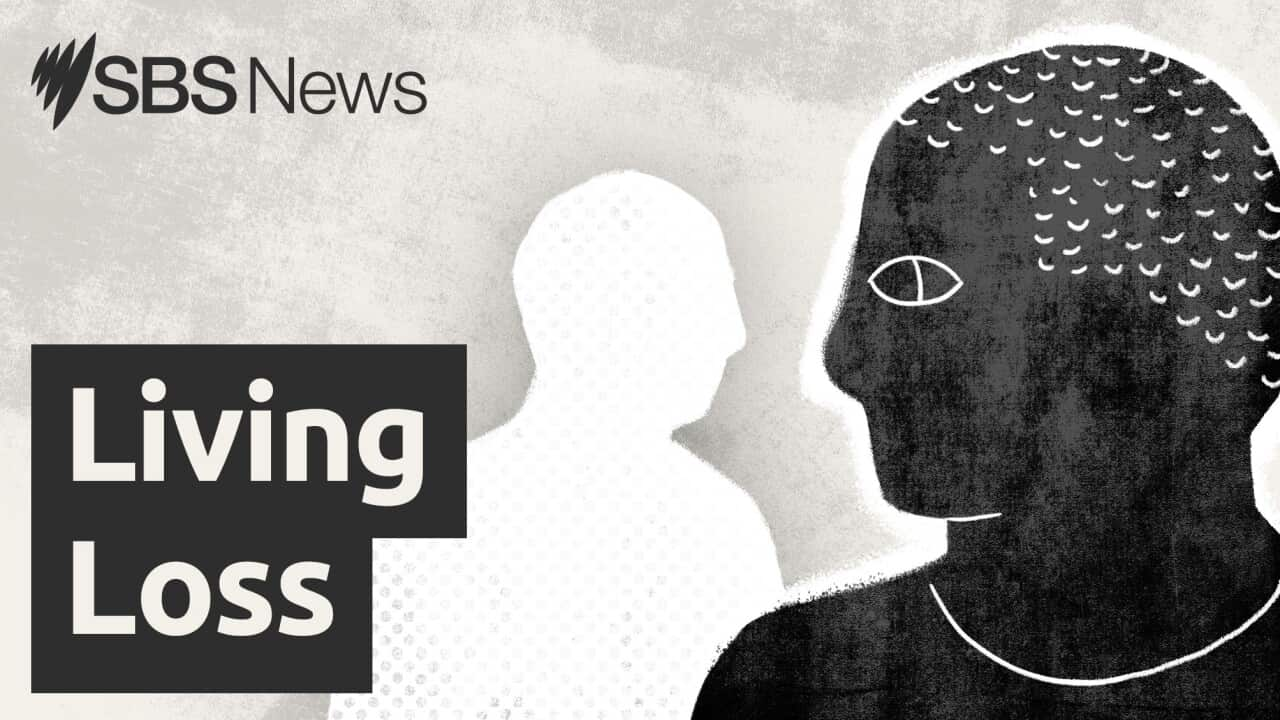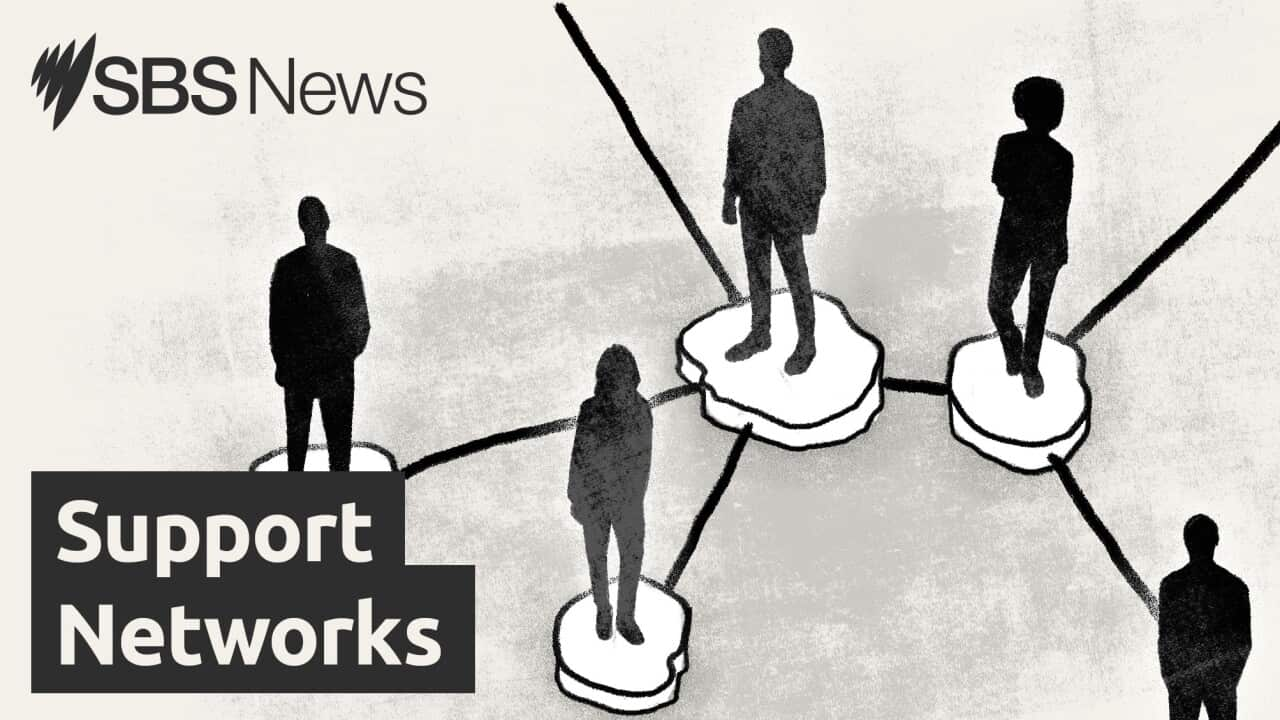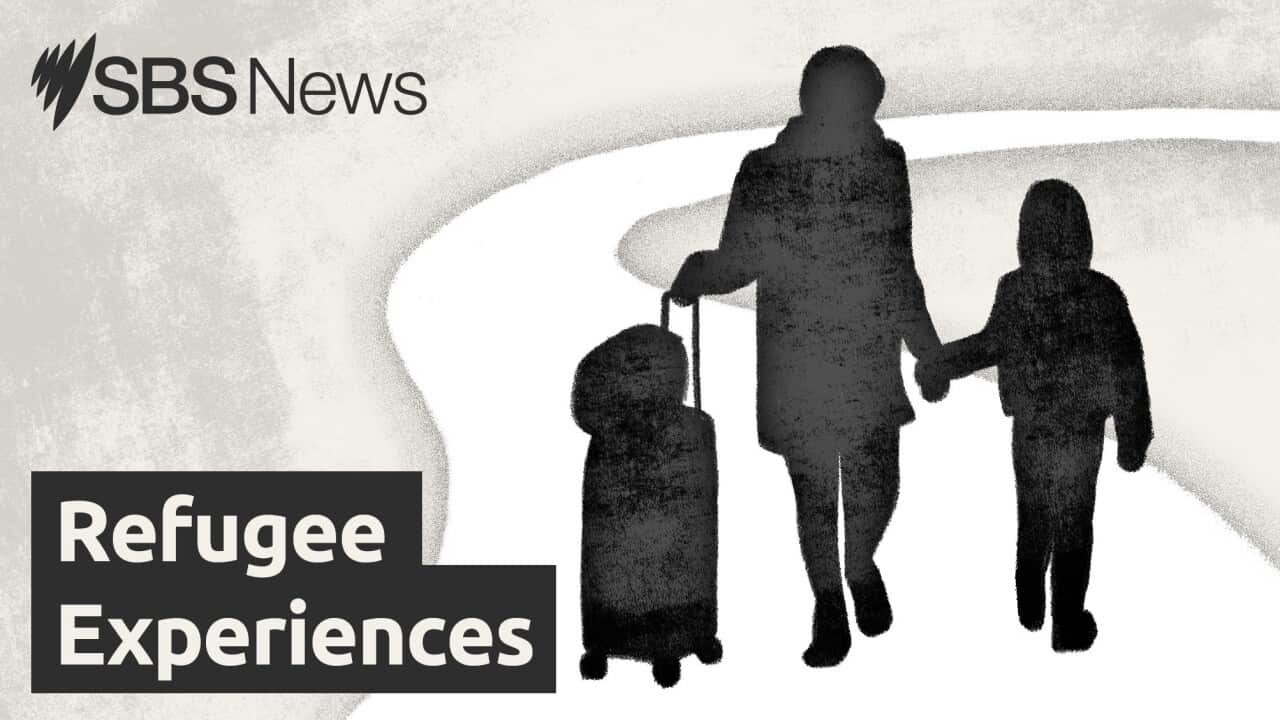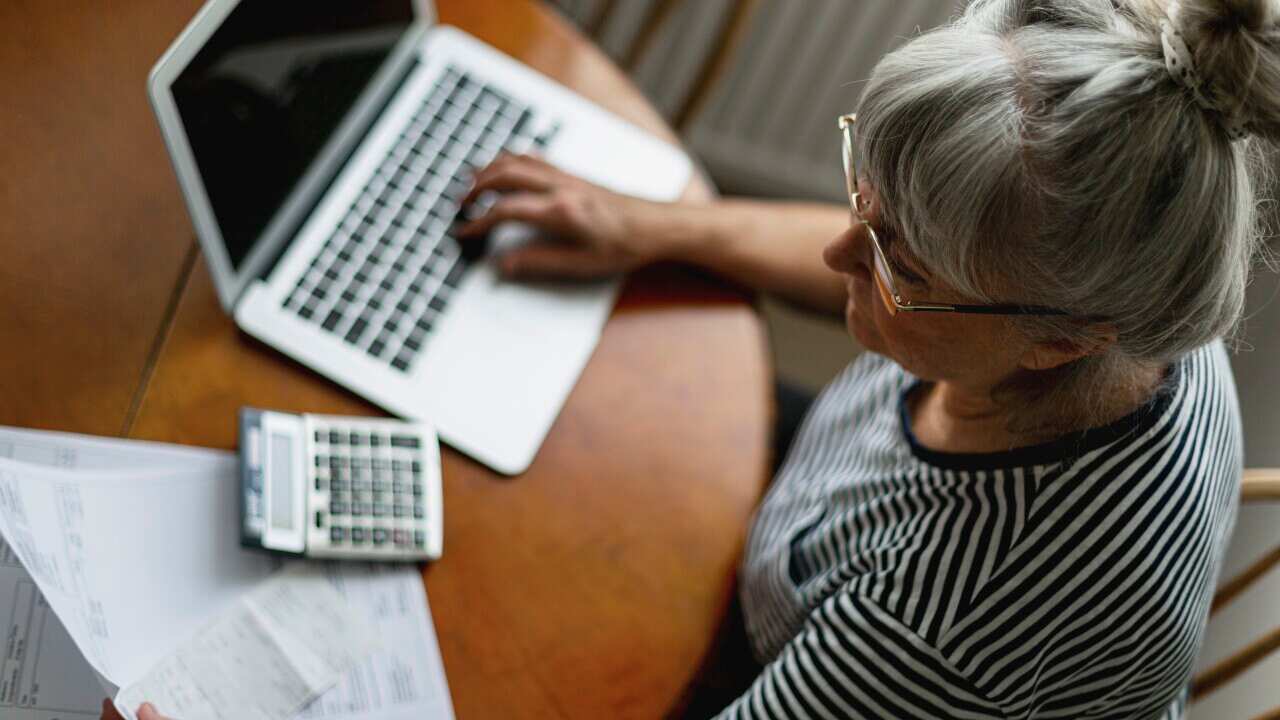TRANSCRIPT
“It's exhausting because as younger ones what's expected of us is to serve our family, serve our Elders, serve our communities. A lot of the time we don't even have time to grieve.”
“And it just felt like a spectacle rather than a commemoration. It just felt like something people did for the sake of doing it.”
Everyone, at some point or another, will lose someone or something they love. And yet grief is still seen as a taboo, particularly in dominant western cultures.
So how do different cultures hold space for grief, and are some better equipped than others?
And how can we think about grief beyond the concept of death, looking at other profoundly life-changing forms of loss?
I'm Catriona Stirrat, and this is the sixth instalment of 'Living Loss'.
In this episode we explore the more challenging aspects of an individual or community's culture during the grieving process.
In other words, the aspects of one's culture that can be confronting or more difficult to navigate during a vulnerable time.
Julia, who you might remember from episode two, felt the grief of her mother's death was swallowed up by Church vigils.
Both her parents were active members of the Pentecostal Church, meaning the funeral was attended by a large crowd of people.
“I didn't feel like I had a private one on one time with her, it just happened so quickly. I just encountered a lot of strangers at the event, the funeral service especially, it's just connections from Church, friends. And it just felt like a spectacle, rather than a commemoration. It just felt like something people did when someone passes away. So I felt it lacked that intimate sentiment. I wish it could have been different, I wish it could have been much more private, and more of just my Dad and myself, and just a few close friends.”
Julia felt that the lack of privacy in the huge Church gathering hindered her ability to process her grief.
“You had to put on a face in front of people, and when you're grieving it's very hard to do that. So a lot of emotions were just suppressed. And I think it took me years, even later, to just reflect, and think about what I was going through in those moments, where I was just out of touch with what was happening around me. And that's a sad thing, because you want to be in the present ,but the memories come back over time, when you think about these really sad moments in your life.”
Kelly Renee, who you might recall from our first episode, also found aspects of her Maori culture weren't easy to navigate during this painful time.
You might recall Kelly from episode one, describing her culture as central to her healing process following the death of her father.
However, it wasn't all easy during such a vulnerable time.
“I just remember I think by day two I was just so overwhelmed by the constant visitors, the constant people, I mean we're talking 50, 60 people coming in at any point. And I just remember feeling a little bit, and I feel silly thinking about it now, I remember feeling like can you just stop for a minute? Can I just have half an hour with my Dad? I really want to sit with my Dad, by myself, just me and Mum.”
Like Julia, Kelly felt that she needed space and privacy following her father's death.
“He deserves all of this love that is coming through the door and from all of his family and colleagues, and the people he has touched in his life, but I felt very jealous that I had to share my Dad in those last moments as well. So that for me was something I definitely struggled with. I remember one of my sisters sort of giving me a bit of a stern word and saying this is just how it is, this is our culture, and you know this, you know this is how it is. But I guess when you're in that situation where you are the bereaved family, you forget that there are other people that are grieving for him too.”
Grief Australia's Christopher Hall describes how each family has their own diverse approach to grieving, just as broader cultures too.
He says it's important to respect the nuanced ways individuals and families grieve.
“Well families have rules, and families also have feeling and grieving rules. For example, in some families, they may light a candle on the anniversary of someone's death, and place a photo alongside it. They might have a ritual that acknowledges the absence of someone at Christmas or some other festival. Whereas in other families the rules might be we don't speak of the deceased, we put photos away, it's too difficult. The grieving is a private affair. Again, we need to be very person-centred in the way we think about grief and bereavement support. One size doesn't fit everybody.”
Even within families there's a diverse range of ways people might express their grief.
Griefline's Marianne Bowdler says it's important to be mindful of the personal ways individuals grieve.
“In supporting your partner, we often misinterpret. We often think, 'why is he painting the kitchen, why isn't he grieving?' And we don't realise he is grieving, that's why he's painting the kitchen. I think as a family member, as a friend, it's helpful to acknowledge that the person might grieve in a different way to how you would. I personally cry a river of tears, but not everybody does. So it's important for me to acknowledge that if I'm with my family members who are grieving that just because they aren't being tearful, doesn't mean they're not in pain.”
These diverse cultural approaches is something Yarraka confronts when constantly code shifting between the western world and her Aboriginal culture.
Yarraka also described her Aboriginal Australian culture as a place of solace in her grieving, but shifting between two worlds can prove difficult.
“I'm much more introverted now, I love my own space. And we come from you know a very village, it takes a village to raise a child. It's a very community-focused group-based culture. We're not an individualistic culture like the western world. And that's been quite difficult, because I'm navigating the western world, and I can do that quite comfortably, and confidentially, and successfully. And then I'm reminded that actually this is the way we operate. My Dad was and my grandmother were very prominent people, so there was always lots of people around. It's draining, it's exhausting because as younger ones what's expected of us is to serve our families, serve our Elders, serve our communities. A lot of times we don't even have time to grieve.”
This code shifting exacerbates grief when the western world enforces its timing and rituals on ancient Aboriginal cultures, as Yarraka shares.
“It feels like we're rushed, usually within two weeks you have to do a funeral, and you have to bury them at a cemetery. And you know, that's not the way we did it, back before colonisation, which you've got over 100 thousand years of a track record of running a very secure, stable, very sophisticated country. And now, you look at the way the world is operating today and it's the opposite. So we've become so removed and so detached from everything that we know, everything that's in our DNA. And I look at it and go, no wonder we've got the highest rates of suicide, no wonder we're the most incarcerated people on the planet. That's the reality we're facing, until, until we're able to have full self-determination.”
Julia has also had to find personal ways of grieving beyond the Pentecostal Church.
Her relationship with the Church is complex, and one Julia has re-imagined following her mother's death.
“It's took me different turns, I've turned to counselling, I've turned to spirituality, I've turned to self-care, self-help. At this point, I don’t have any sort of help from Church to help in that process of grieving, which is really sad. And I think it's a disadvantage when it comes to being in that sort of community is this is something personal, this is something everyone goes through on their own, it's something you have to learn to reflect to. I don't think religion gives you the answer to that. It gives you principles, and I think I'm just learning ot live by those principles and believing that there's always something better on the other side. You have hope so I'm kind of clinging to that.”
Ji-Shen Loong is a Director on the board of Griefline, volunteering his time to offer intersectional counselling approaches that respond to the needs of linguistically diverse communities and LGBTIQ+ peoples.
He says it's not uncommon for people to reject or repurpose aspects of their culture to suit their individual grief needs.
“It's certainly I think people draw on those experiences that make up their identities, I think you know grief is very much certainly a universal experience but that takes place I think in very different ways for people. But I also think you have to be mindful and quite vigilant about what that culture is, because people express it quite differently. And we don't want to I guess divide them into boxes as with healing, and yeah, for some people that might not want to see the body even if that's the cultural norm. They might want their last moment to be an enjoyable event with the person who has been lost, and not to see them in the casket. So there's a lot of variation there.”
Mr Loong explains how this is reflected in the intersectional approach to his counselling.
“The multiple lenses of the people that we work with and the overlapping experiences that informs and shapes their grief, their cultural context, their sexuality, their experience of migration, past traumas, taking all of that into account, makes different factors that might impact a person's ability to cope with loss and being cognisant of that. People come to us with their different levels of readiness, and being aware of that. We don't direct, we aren't the experts of their cultural experience and their own experiences of grief, so we try and get their permission as they talk about it. But also conscious that we don't want to overburden them.”
Funeral director Joseph Ho, who featured in episode two, says this multicultural approach is evident in his experience with funeral arrangements for Chinese-Australian communities.
“It's actually common nowadays that they are navigating two worlds, because they are handling how they say goodbye to their parents or the deceased. At the same time, they're doing what the deceased traditions are. So you still have the Australian-Asian go through the norm of choosing the music, doing a slide show, doing a eulogy. And then they'll leave time for the Monk to do the chanting, as a final farewell. So they are fitting both in, so they're sort of mixing West and East at the same time.”
Mr Ho says there are still often generational differences when it comes to saying goodbye to loved ones.
But he says there is often family cooperation despite these diverse approaches.
“My older generation don't say 'Oh I miss Mum' or things like that. They don't mention that. Because the older generation, or the traditions, believe the more you hang on to the spirit, the more you miss them, the more you're not letting them go on to the next world. Yes you have some not as easy cases where one is going totally different direction, one is like my way or the highway. Yes you still have those, but I find that those are now more the minority. When it comes to grieving, no matter how much the kids fight over whatever things happen in last 20 years, when it does come they do bond together a bit more.”
It's clear grief is both a personal and cultural phenomena.
Yarraka says there doesn't have to be one cultural mould to follow, but rather safe spaces where people can share their stories.
“Yeah I'm just strengthening myself with as much cultural knowledge and ancient wisdom from the best out of whatever I've travelled, and the people I meet, and the different religions I've studies or philosophies. I just take the best out of that and apply it to my life. And you know, there's not a one-size-fits-all approach to the way people deal with grief and trauma. So just to be able to have spaces where we can share our stories and safe spaces where we're actually heard and listened to.”
In our next episode, we explore the unique grief experience of refugees and asylum seekers, and the often compounding layers of loss that often coincide with making the treacherous journey to escape one's home country.
